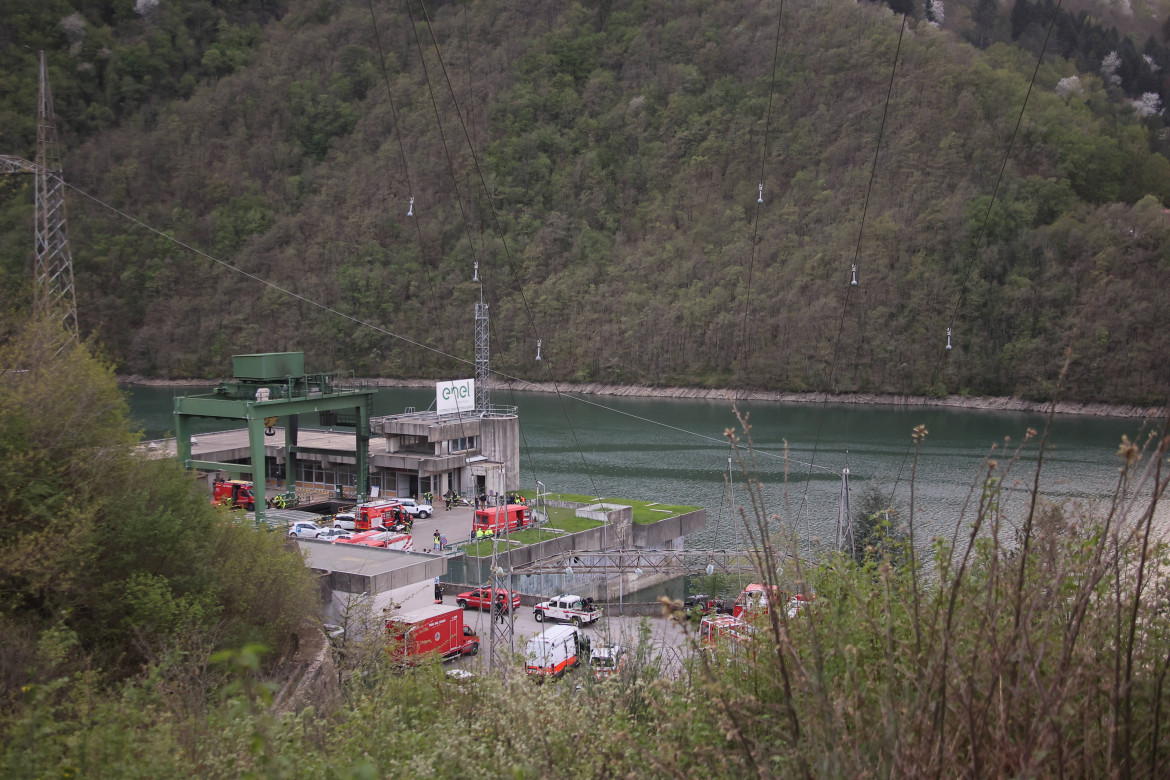Commentary
For corporations, subcontractors are expendable scapegoats
From the Brandizzo train wreck to the Suviana explosion, companies are killing workers by reducing maintenance costs. Often this maintenance work is outsourced to contractors and subcontractors with little training.

Workers are suffering horrible deaths: crushed, torn up, drowned. The “contractor” playbook has been unchanged for decades. Businesses – even large ones like ENEL – are cutting their workforce by not replacing those who (after a painstaking process) manage to retire. And they’re cutting back heavily on labor costs: the biggest item on the list of cuts is maintenance. It requires skilled workers, and it is complicated and occasional work. As a result, these tasks are all outsourced to contractors or subcontractors. For those in charge, this comes with a twofold advantage: cost reduction and the complete disavowal of responsibility for whatever occurs.
The conditions at most of the contractor firms that perform maintenance are about as precarious as they get in today’s already-devastated world of labor. We learned this in Brandizzo; we’re now having to learn it once again in the Suviana tragedy.
We still don’t know how many of those who died in the transformer fire 40 meters below ground at the dam in the Apennines, near Bologna, were external contractors. What is certain is that they will be blamed for what happened.
In Brandizzo, we found out that the work was being done without blocking the movement of trains, relying only on the team leader to shout a warning when a locomotive was coming onto the tracks being rebuilt. At Suviana, we will probably find out that the staff of the contractor company was not trained, used obsolete equipment, had made changes to the team on the go, and were under pressure to finish the work on time although they were already late.
In Piedmont, it was construction workers and railroad workers; in Emilia, it was electrical workers: the fields are different, but the working conditions are not. They have become the same for all sectors.
The system dictates this situation, and only by changing it from the ground up can the ominous tally of daily workplace deaths be improved. This unstoppable trail of blood is the result of 30 years of neoliberal deregulation: it’s easy to find someone who is willing to do anything to work and exploit them without respecting any rights and for starvation wages. And, perhaps, promising them money under the table in exchange for crushing overtime.
While center-left governments are also to blame for a situation that has become entrenched, from the Treu reform to Renzi’s Jobs Act, the Meloni government is undoubtedly making the situation worse. Matteo Salvini’s amendment to the procurement code has brought the (private) construction sector back to the law of the jungle: subcontracting is the axiom, exploitation is the corollary. After the Florence tragedy, Minister Calderone – who, let us not forget, is a labor consultant, a profession that companies rely on to find ways to save on labor costs – came up with an ad-hoc regulation with no deterrent effect. The “point-based license,” based on the notion of a driver’s license, to operate on work sites is taken as obvious, but is unworkable. The idea of “licenses” applied to workers makes little sense and has even fewer teeth: no business will face having its practices stopped, so everything will go on as before.
Finally, what is happening at ENEL, the global energy giant majority-owned by the Italian state, should not be forgotten. After Francesco Starace’s green turn, the Meloni government decided to change track, entrusting industrialist-of-all-trades Flavio Cattaneo with a very simple task: to cut back on everything, “including safety,” as the unions jointly denounced a month ago, deciding together (with the participation of CISL) to go on strike against his plan. Looking back, the reasons for their protest turned out to be prophetic: “We want a company that would lead the energy transition, that would invest in people and their professionalism, that would hire people and create value for the country. The country has no use for an ENEL that thinks only of finances, divesting important parts of its activities and skills while making working conditions worse for workers and employees.”
On Thursday, CGIL and UIL have called for a general strike of all workers – of only four hours, eight for the construction sector – on the issue of workplace safety. The people who died in Suviana won’t have the chance: the “contractor” system killed them before they could make themselves heard. We need to take to the streets for them too.
Originally published at https://ilmanifesto.it/non-ce-diga-che-tenga-alla-precarieta on 2024-04-10
